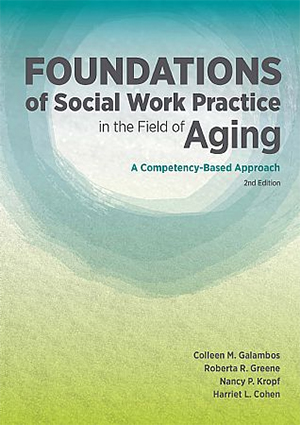Competency-Based Approach in Work With Older Clients
Q&A with co-author of “Foundations of Social Work Practice in the Field of Aging” (NASW Press)
Toolbox

The need for qualified gerontological social workers is at an all-time high. With the aging population projected to dramatically increase, social workers must understand how to effectively aid older clients with a wide range of political, social, cultural and economic experiences.
Colleen Galambos, PhD, professor and Helen Bader Endowed chair in Applied Gerontology at University of Wisconsin-Milwaukee, answers questions about the NASW Press book, “Foundations of Social Work Practice in the Field of Aging: A Competency-Based Approach, 2nd Edition.” Galambos joined Roberta R. Greene, Nancy P. Kroft, and Harriet L. Cohen in writing the book.
What inspired this text?
My co-authors and I were interested in writing a practice book about older adults from a competency perspective. The content in our book aligns with the Council on Social Work Education’s competencies.
Share an interesting statistic from your book.
The need for social workers who are prepared to serve older adults is increasing. By 2040, the population of those 65 and older will be 82.3 million, representing nearly 22 percent of the population, and will be twice as large as in 2000. The number of people 85 and older is expected to triple to 14.6 million in 2040. We are clearly experiencing a longevity revolution.
What are some key takeaways?
The book challenges the reader to reflect and develop self-awareness on social justice issues that impact older adults, such as ageism, and racial, ethnic and cultural factors. The book examines the intersection between human rights and older adults and encourages the reader to develop a human rights approach in working with older adults. We examine what it means to create age friendly, multiculturally competent organizations, communities and policies. It is a book that provides helpful information on how to engage, assess and intervene with older adults, their families, and significant others.